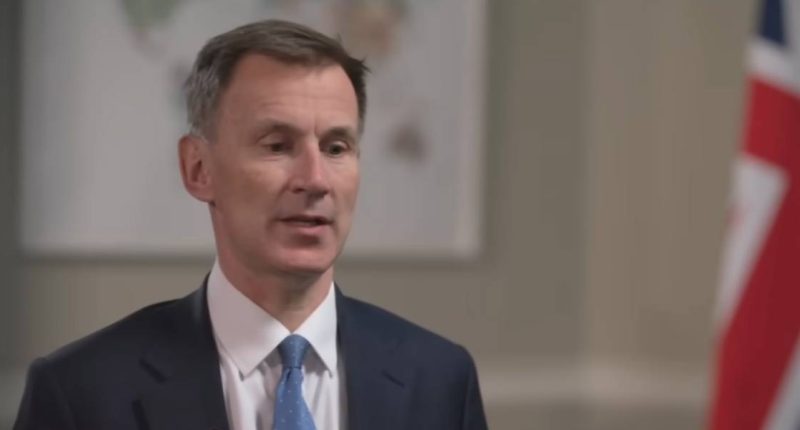Health experts have criticised the Chancellor of the Exchequer for his approach to health funding, describing his strategy in the recent autumn statement as short-sighted.
Jeremy Hunt, in his Autumn Statement, unveiled the UK Government’s financial plans, focusing on growth and a long-term economic outlook.
The strategy included 110 initiatives aimed at boosting growth, primarily by reducing red tape in the private sector, lowering taxes for businesses and employees, and cutting the number of individuals on sick leave.
A key element of his proposal was the reduction of the standard national insurance contribution from 12% to 10% for employed individuals above the tax threshold.
- Finance and insurance: looking after you and your money
- Substantial increase in type 1 diabetes cases in children and teenagers since COVID-19
- Cost of Living Guide
Hunt emphasised that this tax cut, the lowest since the 1980s, would benefit workers, citing an example where a full-time nurse would gain over £520 annually from 2024-25.
Despite Hunt’s claims of increased funding for public services, including the NHS, his focus was on improving public sector productivity by 0.5% annually, rather than boosting spending. This approach, aimed at tackling issues like NHS waiting times, faced criticism from healthcare leaders.
Nicola Ranger, Chief Nurse at the Royal College of Nursing (RCN), interpreted this as a funding cut.
She argued that expecting better outcomes without increased investment would lead to longer waiting times, inadequate staffing, and a reliance on costly temporary staffing agencies. Ranger expressed disappointment at the missed opportunity to support the NHS, particularly given the challenging winter ahead.
Similarly, Dr. Layla McCay from the NHS Confederation viewed the statement as a missed opportunity to address the challenges and financial shortfalls in the health sector.
She highlighted the necessity of capital investment to boost productivity and lamented the lack of resources to support this goal.
The statement also included a 9.8% increase in the minimum wage, set to begin in the 2024-25 financial year, which, according to Dr. McCay, would require additional funding for NHS organisations.
Sir Julian Hartley of NHS Providers echoed the call for more resources, emphasising that increased productivity should not solely depend on overburdened staff. He highlighted the need for resolving disputes with doctors’ unions to reduce waiting lists.
- Calls for smoking ban and fruit juice tax
- Defining junk food for tax purposes could encourage healthy food innovation
- Ukrainian family moved to tears by fundraiser to help diabetic daughter
Patient advocacy groups also expressed disappointment. Rossanna Trudgian from the Teenage Cancer Trust criticised the government for not providing adequate funds to the NHS, particularly for services like cancer care for teenagers.
The statement, however, did not include new funding for social care, drawing criticism from Professor Martin Green of Care England, who stressed the economic contribution of the social care sector.
Dr Charmaine Griffiths, Chief Executive of the British Heart Foundation, said: “The Autumn Statement brought little hope for the record 400,000 people in England facing distressing, and potentially life-threatening, waits for heart care right now.
“The Government has pledged to cut waiting lists, but the NHS needs significant, sustained investment and support to do this.”
On a positive note, the Autumn Statement announced a £520m investment in pharmaceutical manufacturing and a £5m package for a health innovation centre at Imperial College London, in recognition of the centenary of penicillin’s invention.
Overall, while the statement included investments in various sectors, including AI and housing, its approach to healthcare funding and the public sector has sparked significant debate and concern among health professionals and patient advocacy groups.






